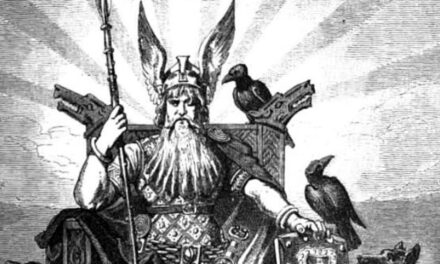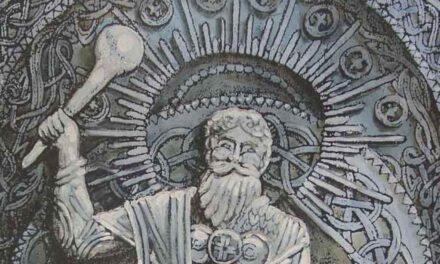Introduction
On mountains crowned with clouds and in temples of marble and flame, the Greek gods once walked as kings and queens of a divine order. They were gods of sky and sea, of war and wisdom, of music and mystery — beings whose passions mirrored those of mortals, yet whose powers bent the very elements of the world. To honor them was to stand at the threshold of both greatness and ruin, for the Olympians were both protectors and destroyers.
Former Glory
The Greek pantheon, ruled from lofty Mount Olympus, was once the heart of one of the most influential civilizations in history. Zeus, wielder of thunder, reigned as king of gods and men, his will shaping justice and power. Athena, born of his mind, stood as goddess of wisdom, strategy, and crafts, guiding both warriors and artisans. Apollo, radiant with prophecy and music, shone over oracles and poets alike, while his twin sister Artemis guarded the hunt, the wilderness, and the young. Hecate, mistress of crossroads and magic, held sway in the shadows, honored by those who walked between worlds.
Their temples rose as masterpieces of stone — the Parthenon for Athena, the temple of Apollo at Delphi, the great sanctuaries of Zeus at Olympia. Pilgrims traveled miles to seek the gods’ counsel at oracles, to lay offerings of wine, honey, or sacrifices, and to watch sacred games and festivals in their honor. Their myths, preserved by Homer and Hesiod, made them immortal in both word and worship.
Modern Revival
Though their temples fell silent with the spread of Christianity, the Greek gods have found new life in the voices of modern practitioners of Hellenismos and related revival movements. In Greece itself, groups such as the Supreme Council of Ethnikoi Hellenes hold ceremonies at ancient sites, offering libations and prayers to the Olympians. Festivals like Panathenaia (for Athena) or Thargelia (for Apollo and Artemis) are reconstructed and celebrated once more, blending ancient customs with modern devotion.
Worldwide, Pagans and Hellenic polytheists honor the Olympians in both solitary and communal practice. Zeus is invoked for justice and authority, Athena for wisdom in study or work, Apollo for creativity and healing, Artemis for protection and independence, and Hecate — increasingly popular in witchcraft traditions — for guidance in liminal spaces and magical practice.
Modern rituals often involve hymns inspired by ancient sources, offerings of wine, incense, olive oil, and bread, and the lighting of candles in place of temple fires. Online communities share prayers, translations of Orphic hymns, and ways to adapt ancient ritual into daily life. In some cases, small shrines and household altars serve as the new sanctuaries of the gods, echoing the domestic worship of antiquity.
The revival has gained recognition in Greece, where legal battles for the right to worship publicly have led to modern ceremonies being permitted at ancient temple sites. In this way, the gods of Olympus are not only remembered, but once again honored beneath the skies they once ruled.
Conclusion
The Greek gods were never silent — their stories shaped Western imagination for millennia. Now, in the flicker of candles and the chants of modern hymns, they rise again as living deities. The question lingers: do Zeus’s thunderbolts still strike for justice, does Athena’s wisdom still guide her followers, and does Hecate still walk with those who seek her at the crossroads of night?





